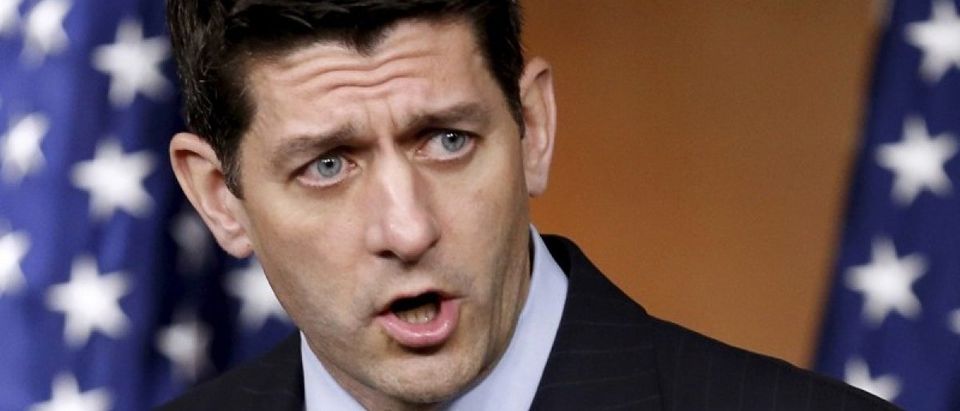House Speaker Paul Ryan’s recent press conference on the GOP’s plan to alieve poverty was overshadowed in the media by questions about controversial comments made by presumptive Republican nominee Donald Trump. This is the new normal this election cycle.
Unfortunately, much of the media circus overlooked the core facets of the Speaker’s agenda for “A Better Way,” and the narrative failed to highlight a larger shift in Ryan’s leadership style. Despite his reputation as a policy “wonk,” Ryan is setting a strategic vision for his caucus, and tasking committee chairs with drafting and driving policy that follows his principled blueprint.
It was no accident that Ryan chose to release the report from his Task Force on Poverty, Opportunity, & Upward Mobility first, just as it was no coincidence that he gave his first speech as Speaker at the Kemp Forum on Expanding Opportunity. Alleviating poverty and promoting opportunity have always been personal missions for him.
Ryan’s blueprint for reforming the welfare system and fixing the epidemic of impoverishment demonstrates his commitment to turning over a new leaf for the GOP on this critical American issue. He opens up a new path to addressing issues on which Republicans haven’t traditionally engaged. It’s a fresh approach with the potential to get people back on their feet and target our resources more wisely. For too long, the apparatus in place has served solely as a safety net, yet as more and more individuals seek help, what was meant as temporary assistance has become a normal part of life for too many.
Between 2006 and 2016, welfare spending has more than doubled – $369 billion to $744 billion. In large part, this monstrous growth is due to redundancies and inefficiencies in an overly complex system. Yet, despite the gargantuan price tag, the policies in place have done little to actually reduce poverty. The official poverty rate in 2015 (14.5 percent) is nearly identical to the rate in 1966 (14.7 percent).
Despite a few bad actors, the real problem with our welfare system is the system itself. It’s a system meant to prevent people from falling deeper into poverty, rather than helping them out of it. Red tape in Washington has made programs nearly impossible to navigate, and policies made with the best of intentions prevent flexibility and customization.
At the core of Ryan’s plan is accountability and results-driven solutions. Each tactic we deploy needs to be measured for how effective it is at raising people out of poverty. We need to spend more resources on programs that work, and less on those that don’t. If we allocate our resources better, we can shrink the number of people who need to collect welfare benefits and increase those who become a part of our growing economy. It’s that simple.
Pen to paper policies need to focus on individual needs and be flexible enough to apply to unique situations. The bad actors in the system shouldn’t hold back those who are trying to work their way back to independence. We need to empower non-profits to step in where government can’t, create the right incentives for individuals to move from welfare back to work and focus more on results-based education (including early childhood interventions) and workforce development so we don’t repeat past mistakes.
Our success should not be defined by how many people we can take care of, but rather how few we need to take care of. Beyond care, we need to set strategic goals for helping people out of poverty. Poverty shouldn’t define us. Opportunity should. Speaker Ryan has laid out a path for all to achieve the American Dream – now, we need to follow it.
Leslie Belcher is a managing director, government affairs & public policy at Steptoe & Johnson LLP


